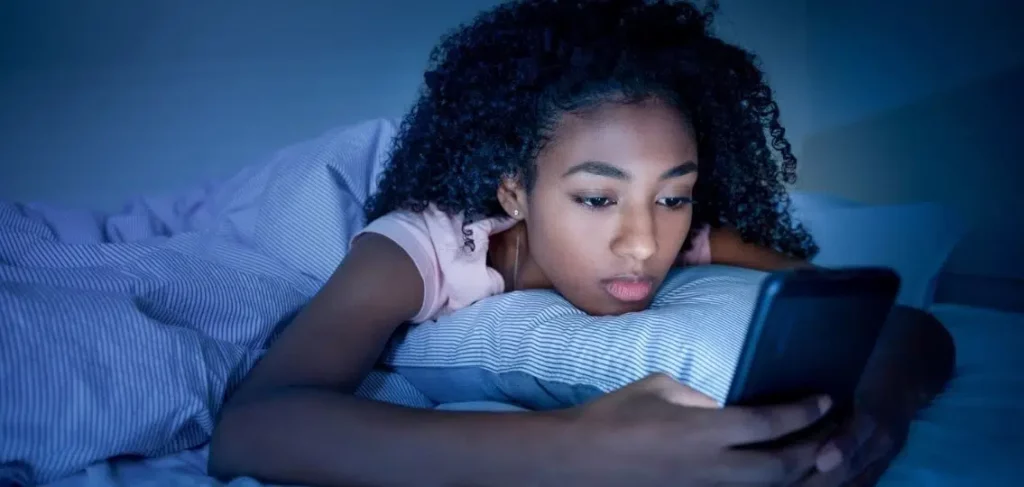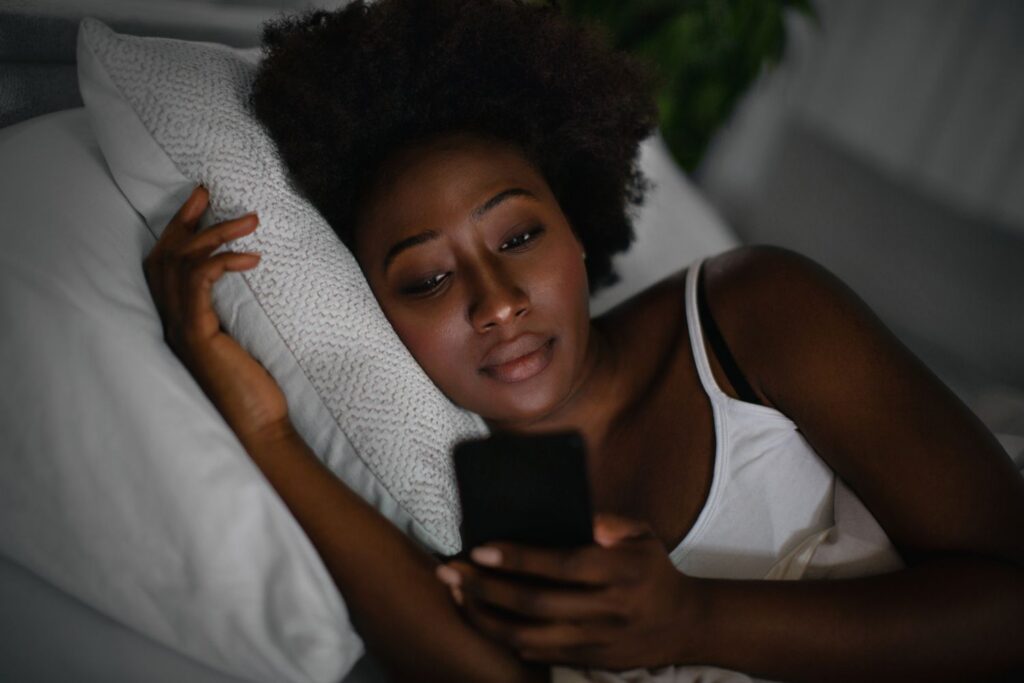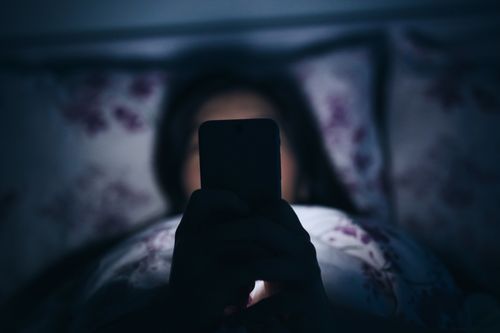Introduction
Imagine spending most of your day glued to screens – scrolling through social media, binge-watching videos, or gaming for hours. While it may seem like harmless fun, research shows that excessive screen time can have serious consequences for young people’s physical and mental well-being.
Your Brain on Screens: The Mental Health Toll
Too much screen time is like junk food for your brain. It might offer temporary pleasure, but it can leave you feeling empty and unhappy in the long run.
Young people who spend extensive time on screens face higher depression rates. They experience increased anxiety and are more chances to self-harm.
The constant stimulation from screens can overwhelm your brain, making it difficult to regulate emotions and leading to feelings of sadness and isolation.
For more insight on this, visit: https://www.ed.ac.uk/news/2024/teens-who-up-screen-time-raise-mental-health-risks#:~:text=Excessive%20screen%20users%20in%20adolescence,daily%20for%20each%20screen%20activity.
The Body’s Burden: Physical Health Risks
Spending hours in front of screens can also be a burden on your body. It promotes a lazy lifestyle, encouraging unhealthy snacking and discouraging physical activity. A study of 11- to 24-year-olds found that those who spent too much time on screens were less likely to eat healthy food. This lack of exercise and poor diet can lead to obesity and other health problems. Furthermore, the blue light emitted from screens can disrupt sleep patterns, leaving you feeling tired and irritable.
Disconnected: Social Skills and Relationships
Screens can help us connect with friends online. But, they can also hurt our ability to build real relationships. Spending too much time online means less time with friends and family. It means less face-to-face interaction. These in-person interactions are crucial for developing empathy, communication skills, and a sense of belonging. Young people who prioritize virtual connections over real-world relationships may struggle to form meaningful bonds and navigate social situations.
School’s Out: The Impact on Academic Performance
Devices distract young people’s attention, pulling their focus away repeatedly. This distraction makes it hard for them to focus on their studies. Your phone is buzzing with notifications. It’s hard to focus on homework or learn in class. Research has shown a correlation between high screen time and lower academic performance. Students who spend excessive time on screens may struggle to stay engaged in their studies and may experience difficulty remembering information.

Balancing Act: Finding a Healthy Approach to Screen Time
While screen time can offer educational content and entertaining experiences, it’s crucial to maintain a healthy balance for young people’s well-being. Experts recommend limiting daily screen time to 2 hours. This cuts the negative impacts on physical and mental health.
To achieve this balance, encourage kids and teens to do many screen-free activities. Outdoor play, for instance, provides many benefits, such as physical exercise, exposure to sunlight for vitamin D production, and opportunities for social interaction. Encourage participation in sports. This involves cycling trips or discovering the outdoors. These activities foster a healthy lifestyle.
Additionally, encourage young people to explore hobbies and interests that don’t revolve around screens. This could include reading books, playing musical instruments, drawing, or joining clubs and organizations. These activities promote creativity, critical thinking, and social skills development.
Fostering face-to-face interactions with friends and family is also essential for young people’s emotional and social development. Encourage them to spend time with loved ones. They should engage in conversations and join in shared activities. These interactions help build strong relationships, develop communication skills, and create a sense of belonging.
Screen Time Success: Tips for a Healthy Balance
- Limit daily screen time: Aim for no more than two hours a day.
- Rank other activities: Encourage outdoor play and exercise.
- Explore hobbies and interests: Find activities beyond screens.
- Connect with others in person: Spend time with friends and family.
- Remember: Your brain and body need screen-free time to thrive.

Taking Action: Protecting Young Minds and Bodies
Parents, teachers, and caregivers have a crucial role. They can promote healthy screen time habits. Set clear limits on-screen use. Create tech-free zones at home. Encourage alternative activities. By working together, we’ve helped young people develop a healthy relationship with technology and protect them from the negative effects of excessive screen time.
A Brighter Future Beyond the Screen
The digital age offers countless opportunities for learning and connection, but it’s essential to navigate the online world with caution. By prioritizing real-world experiences and limiting screen time, we’ve been able to empower young people to lead healthier, happier, and more fulfilling lives.
Thank you for reading, click the link below to read our other Opinion Articles:
https://insidesuccessmagazine.com/category/opinion
Inside Success presents to you our digital platform, created to inform, inspire and empower 16-35s. Through our articles, we aim to bring bold ideas, fresh voices and real conservations to life. From mental health advice, to career information, and fashion tips to social issue debates, Inside Success is proud to have created a platform that has something to cater to everyone.




Leave a Reply
You must be logged in to post a comment.